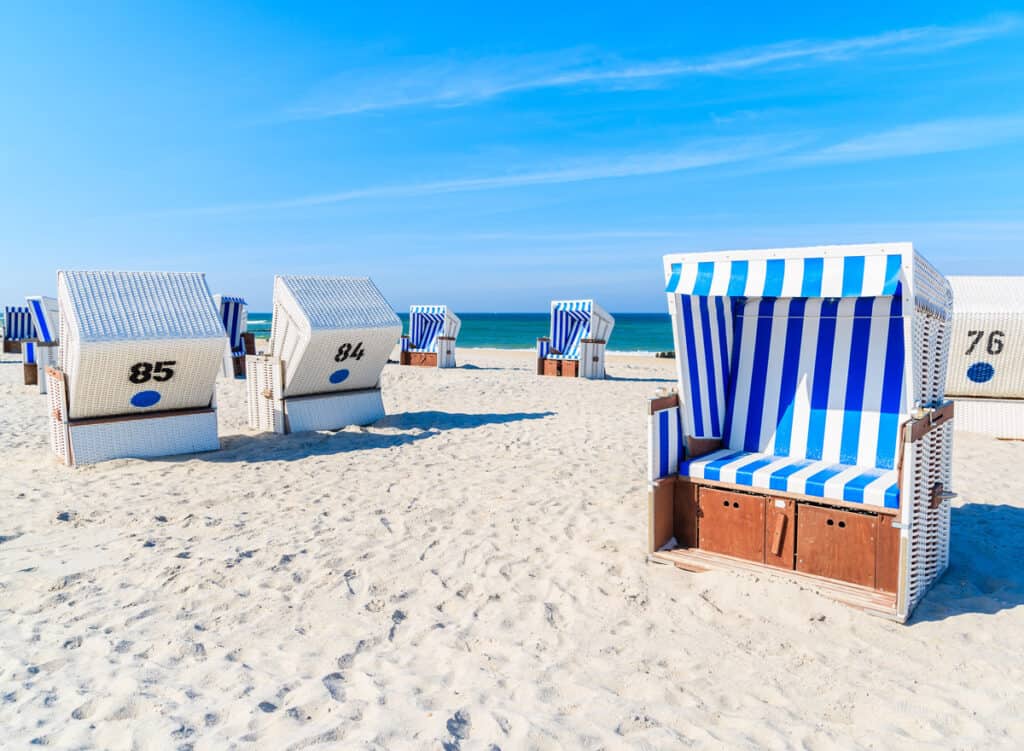
The individual federal states have retained their sovereignty and are not reacting uniformly in the Corona crisis. What is allowed in one state is subject to fines in another. However, the basic trend is the same: people should keep their distance from each other and isolate themselves as far as possible. Now the Easter holidays begin – is it possible to travel within Germany during Corona?
No contact ban yet, instead voluntary renunciation
Despite Corona, travel in Germany is not expressly prohibited. Such a ban would be difficult to enforce, because after all the economy should not be completely paralysed. Those who have to travel for business reasons may continue to do so. Anyone who has to travel in order to support sick relatives, relatives in need of care or relatives who are in quarantine may also do so. However, travel for pleasure should be avoided. The risk of infection is too great when people on trains, buses and planes come close to each other.
But what exactly is the situation within Germany now? Travel Germany during Corona – does that fit together? Is there anything left to do?
Advice: Do not travel more than a few kilometres from your place of residence

Whether German or not – the North German islands are completely closed to tourists. This concerns:
- Wangerooge
- Spiekeroog
- Langeoog
- Baltrum
- Norderney
- Juist
- Borkum
- Sylt
- Amrum
- Föhr
- Nordstrand
- Fehmarn
- Rügen
- Usedom
- Hiddensee
- Poel
The measures have also been extended to the German mainland, travellers are currently not allowed to enter Schleswig-Holstein. All tourists have been persuaded to leave the country, day tourism is prohibited. However, travel for private and professional reasons remains an exception in Schleswig-Holstein.
Mecklenburg-Western Pomerania has imposed a ban on excursions at Easter, so day trips are not permitted here either. The situation is different in Lower Saxony: Some beaches and places of excursions are already closed, others may be closed. But Lower Saxony does not want to impose a general ban on excursions over Easter.
For all those who need a little fresh air and want to go outdoors alone or with one or two relatives, the following applies: Within a radius of about three kilometres from the place of residence, this is not a major problem. However, excursions to more distant regions should be avoided.
Hesse: No long stay in parks allowed
A similar path as Lower Saxony goes Hesse. There is no general travel ban here either. However, restaurants, hotels, conference centres, youth hostels and other accommodation facilities are closed. Playgrounds and other places of excursions are also closed and not accessible. Parks and public green spaces, on the other hand, are still open – for individual sportsmen and women and walkers. And so the police say quite clearly: walks with the family, cycling and jogging alone or at a reasonable distance from everyone else are not a problem. On the other hand, anyone who sits down in the park for a picnic or lies down on a public lawn to sunbathe will not be tolerated. Fines may be imposed for violations of the ban on gatherings, the ban on excursions and travel, and other violations of the measures currently in force against the further spread of infectious diseases. The amount of the fines varies between 200 euros and 25.000 euros or up to five years imprisonment. And this is not only the case in Hesse.
Corona travel within Germany: Not a good idea during the Easter holidays either
Young people and senior citizens in particular suffer from the current situation. It is difficult for children to understand that after three weeks of contact ban towards playmates and friends, the playgrounds are still closed and you are not even allowed to visit your grandparents over Easter. Even if travelling in Germany remains allowed, at least according to the official wording and for various private and business reasons – visits to relatives, especially with an overnight stay, should also be avoided over Easter.


